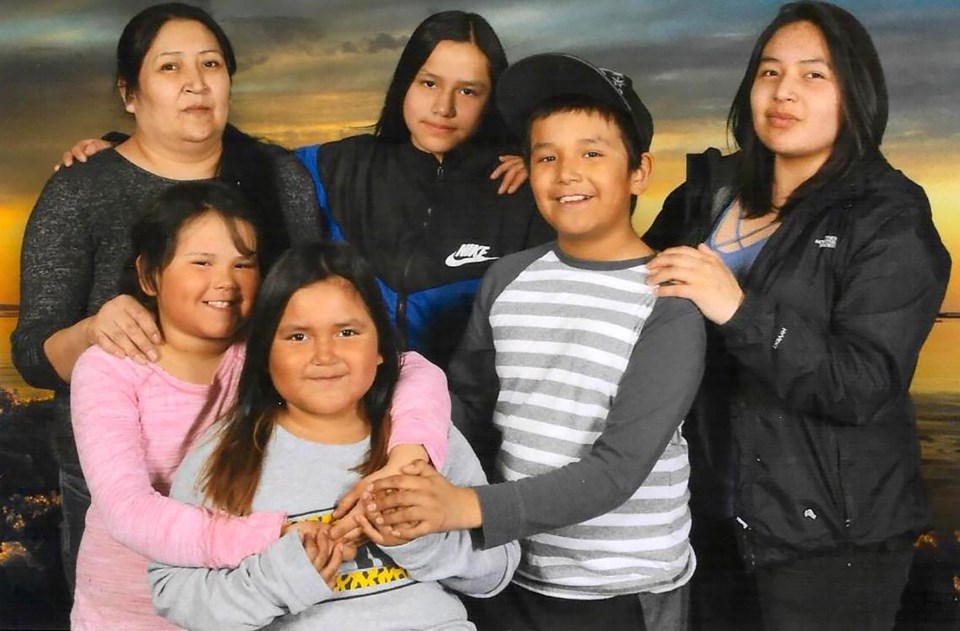KENORA – A Kitchenuhmaykoosib Inninuwug First Nation man has been found guilty of the second-degree murder of five people – including four children – in a house fire in the isolated community six years ago.
Archie McKay was charged with five counts of first-degree murder on Dec. 8, 2020, following the fire on May 2, 2019.
The fire destroyed the home of Geraldine Chapman, 47, who died in the fire along with her 6-year-old daughter Shyra Chapman and three children who were in her care, Angel McKay, 12, Karl Cutfeet, 9, and Hailey Chapman, 7.
All of the victims died from smoke inhalation.
McKay had been in an on-again off-again intimate relationship with Chapman; the two were the biological parents of Shyra.
The fire destroyed Chapman’s home on Macheetao Road in KI, a community about 580 kilometres north of Thunder Bay.
The First Nation did not have a fire department at the time.
A judge-alone trial took place over several weeks in November and December 2023 and again in March, June, August, September, and October of last year in Kenora.
In a 144-page judgment released on April 29, 2025, Justice J.S. Fregeau said having considered all of the evidence, he was satisfied beyond a reasonable doubt McKay was aware of the likely consequences of starting a fire near the porch area of Chapman’s home in the middle of the night.
“I am also satisfied beyond a reasonable doubt that the accused, in setting the fire, meant to cause Geraldine Chapman’s death or meant to cause her bodily harm that he knew was likely to cause death and was reckless as to whether death ensued or not,” he said.
Fregeau also said he finds it reasonable to infer the accused knew that the four children lived in the house with Chapman and he knew they were asleep in their beds at the time he set the fire.
During the trial, the court heard from Creighton Beardy, an acquaintance of both McKay and Chapman.
Beardy said he went to Chapman’s to drink and that Chapman had kicked McKay out of the house that night because she was angry he had drank more than his share of a bottle of alcohol of Chapman’s.
The judge said he found the following facts were proven beyond a reasonable doubt: McKay set the fire shortly before 4:48 a.m. on May 2, 2019 and he used an accelerant, and that McKay set the fire near the only entrance and exit to the home and knew the home was made of wood.
The judge noted there is no direct evidence McKay set the fire and that the Office of the Fire Marshall could not determine the cause of the fire.
“The Crown’s case includes an extensive body of circumstantial evidence which, the Crown submits, when considered cumulatively as required, supports only one reasonable inference – that the accused did in fact set the fire that caused the deaths of Ms. Chapman and the children,” said Fregeau.
In his decision, Justice Fregeau accepted the opinion of a burn expert who believed burns to the back of McKay’s right hand were consistent with having been caused by a combustible liquid spilled or splashed on the skin and “that the burn to the right side of the accused’s forehead was consistent with having been caused by exposure to open flame.”
“These findings lead me to conclude that the accused was visibly burned by a flammable liquid at the scene of the fire, walked away from the burning house and did not return for over two hours, knowing of the fire, that the fire blocked the only exit from the home, and knowing that Ms. Chapman, Creighton Beardy and four sleeping children were in the house.”
Justice Fregeau said he was not convinced the fire was planned and deliberate, which would constitute first-degree murder. He also said the Crown's theory of criminal harassment, commonly referred to as stalking, was not proven beyond a reasonable doubt, which could also have been grounds for first-degree murder.
He therefore found McKay guilty of second-degree murder.
McKay has yet to be sentenced.
